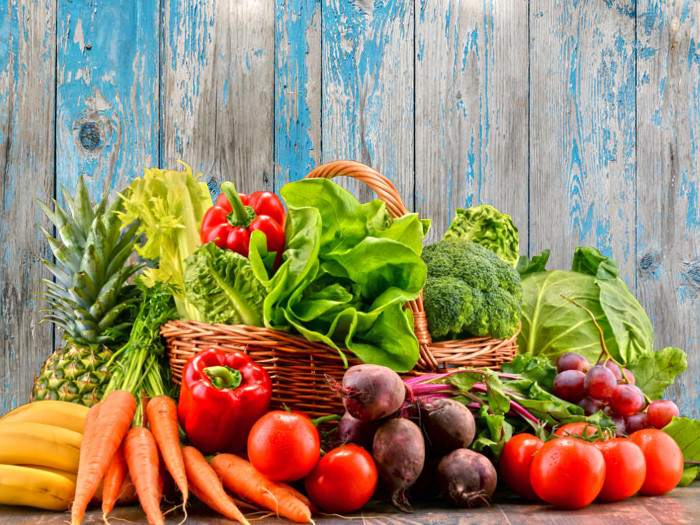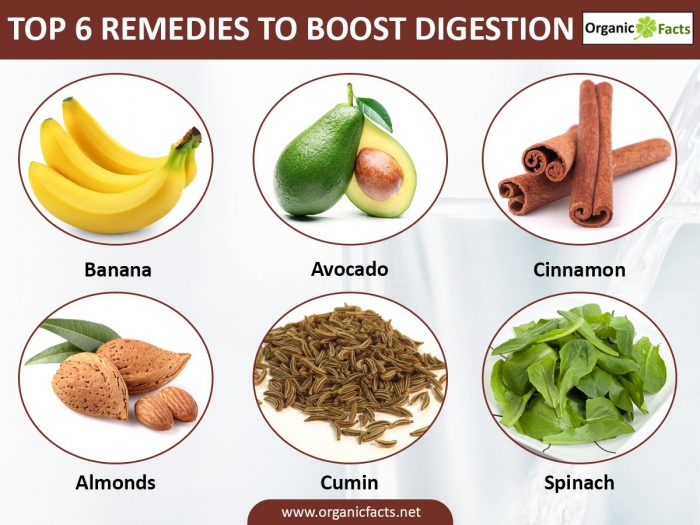In our fast-paced modern world, it can be difficult to ensure that we take care of all aspects of our health. Unfortunately, diet is often the first thing that suffers when we are busy, stressed or just lazy. Our digestive health is inevitably affected by this common oversight, which can lead to a wide variety of symptoms and conditions. If you’ve ever felt bloated or constipated, suffered from excessive gas and intestinal distress, experienced the pain of hemorrhoids or have been diagnosed with a serious gastrointestinal disorder, then paying close attention to your digestive health is crucial.
The health of your digestive system is affected by physical, emotional, behavioral, dietary, and physiological factors. To ensure a healthy stomach, you must consider all of these factors in your daily life.
The gut comprises of a whole host of microbes that affect the physiology and optimum functioning of our brain and body. It is also known as the gut microbiota. Gut microbes affect the way the body stores fat, how the blood glucose levels in your body are managed, and your response to hormones that control your hunger and feeling of satiety.
A wrong mix of microbes can set the stage for obesity and other metabolic disorders later in life. Studies also reveal that gut bacteria produce neurotransmitters like serotonin, dopamine, and GABA that regulate your mood. In addition, gut microbes also play a potential role in the treatment and prevention of anxiety and depression.
In other words, it can be observed that the wellness of your body and brain is dependent on your gut health.
The most effective ways to improve digestive health include eating at regular intervals, staying hydrated, cutting down on smoking and alcohol, restricting fatty foods, and adopting stress-relieving techniques such as meditation. In addition, staying physically active and modifying your diet by including high-fiber foods, probiotics, tea, fruits, and vegetables is equally important. [1]

Good digestive health is important for an over-all well being of the body. Photo Credit: Shutterstock
Tips to Improve Digestive Health
Let’s take a closer look at helpful tips to improve digestive health;
Get your dose of Gut-healthy Compounds: Prebiotics & Probiotics
Prebiotics are classified as the non-digestible food ingredients that probiotics can feed off. Where else probiotics are the healthy bacteria that strive continuously to keep your entire gut running smoothly and effectively. Probiotics are present in fermented foods as well as in some supplements. Yogurt is the most touted probiotic food. Prebiotics are found in raw garlic, certain fruits like banana and vegetables like onions, asparagus, leeks, and whole grains. Fiber is the most important of all the prebiotics.
If you are trying to improve the health and efficiency of your stomach, probiotics (good bacteria) are a great place to start with. By replenishing healthy bacteria in your stomach, you improve nutrient uptake and generally protect the stomach from bad bacteria and other pathogens that can compromise your digestive system. [2]
Up the intake of Fiber in the Diet
The National Fiber Council recommends an intake of about 32 grams of fiber into your diet each day. Aim for incorporating both the types of fiber: soluble and insoluble. Soluble fiber dissolves in water and it helps to reduce cholesterol levels and regulates blood glucose levels. Sources include rolled oats, barley, legumes, fruits and vegetables, and barley.
On the other hand, insoluble water does not dissolve in water and it promotes regularity of bowel movements. Sources include whole wheat flour and products, wheat bran, nuts, beans, and some vegetables like cauliflower, green beans, and potatoes. [3]
Exercise
Exercising helps to boost your heart rate, increases blood flow, and stimulates the metabolism. Besides, it also helps to regulate your hunger, burn calories, improve muscle tone, and reduce obesity. Research published in the journal of Experimental Physiology suggests that the efficiency with which our bodies are able to transport oxygen to the tissues (cardiorespiratory fitness) is a far greater predictor of gut microbiota diversity than either body fat percentage or general physical activity levels. [4] [5]
Bananas
Bananas are well known for their potassium content, which is a vasodilator and an anti-inflammatory, both of which are good for digestive health. It is also a good source of fiber, which is essential for digestion. Fiber helps to bulk up the stool and move it through the colon, thereby reducing constipation. [6]
Unripe ripe bananas contain resistant starch, a type of carbohydrate that is absorbed slowly and does not cause a sharp rise in blood glucose levels. The starch acts as a food for the growth of beneficial microbes in the digestive tract. These microbes break down and ferment the starch as it passes into the large intestine producing short-chain fatty acids that may play a crucial role in the prevention of various chronic digestive disorders. [7]
Bananas are natural antacids, thus can help in neutralizing stomach acid and aid in ulcer treatment. The presence of leucocyanidin increases the thickness of the mucosa membrane of the stomach which also provides additional protection from ulcers. Hence, slice them on your cereal bowl, blend them in a smoothie or gobble them as your midday snacks. [8]
Limit the Intake of Fatty Acids
Restrict the intake of fatty foods in the diet. Make use of low-fat cooking methods in the daily routine. Opt for plant-based foods as they are naturally low in fat. In fact, a study presented at UEG Week 2019 has shown that plant-based foods were associated with high levels of friendly bacteria that support the biosynthesis of essential nutrients and the production of short-chain fatty acids (SCFAs), the main fuel for cells lining the colon. Research reveals dietary fat also influences the composition and metabolic activity of the gut microbiota. [9] [10]
Quit Smoking
Smoking seems to be bad for every part of the body and our digestive system is no different. It has an astringent effect on the body by narrowing the blood vessels and increasing the likelihood of inflammation; this sort of effect can be very harmful and can lead to heartburn, ulcers, and other intestinal complications. As per a study, of all the factors that affect the gut microbiota, cigarette smoking was reported to be associated with Clostridium difficile infection and the gut microbiota of inflammatory bowel diseases. [11] [12]
Avocados
Like any other fiber-rich food, avocados are a cheap and nutrient-packed way to protect our stomach. Besides promoting better satiety levels, avocados are rich in antioxidants and fiber that stimulates peristaltic motion and reduces inflammation in the gut. [13]

Vegetables, especially leafy green, are supposedly good for digestive health. Photo Credit: Shutterstock
Ease off Alcohol
There’s nothing wrong with going out for a night of relaxation and some pints, but alcohol, particularly in excess, can do massive harm to your stomach. Excessive alcohol intake not only promotes vomiting, but also causes inflammation in the stomach, heartburn, and general intestinal distress. [14]
Cut Down Caffeine
There are plenty of benefits to coffee, namely providing an energetic kick in the butt every morning when you gulp down your first brew. However, coffee is highly acidic, and can seriously mess with the acidity of your stomach, particularly when you haven’t eaten anything else the whole day! If you regularly drink down a pot of coffee and have chronic stomach issues, consider cutting back on the coffee to keep your stomach from revolting! [15]
Reduce Stress
Although most people think of intestinal distress as a physical problem, don’t forget that our body and mind are closely linked, especially through the release of stress hormones. Stress and anxiety can literally “tie your stomach into knots” and we’ve all felt that before. If you actively reduce your stress levels, your bowel movements will become regular and that knot in your stomach will get untied too.
Cumin
This herb has been used for hundreds of years as a digestive aid and can help to reduce heartburn in many patients. Heartburn is often a result of something highly acidic or spicy that you ate, and since cumin is often included in such dishes, your solution can often be right in the recipe! It also helps reduce bloating and provides relief from the symptoms of irritable bowel syndrome. [16]
Meditate
Many people have mixed opinions about meditation, but the benefits are undeniable. By clearing your mind and releasing the tension you are improving the flow of energy and blood in the body, which can help to regulate your digestive system. In addition, stress results in an altered gut microbial population that affects the regulation of neurotransmitters mediated by the microbiome and the gut barrier function. Meditation helps regulate the stress response, thereby suppressing chronic inflammation states and maintaining a healthy gut- barrier function. [17] [18]
Black Pepper
One of the active ingredients of black pepper, piperine, has been shown to increase the number of digestive juices, which can help to stimulate digestion, prevent constipation, and increase the efficiency of nutrient uptake. [19] [20]
Stretch
Doesn’t it feel good to start every morning with a big, healthy stretch? Well, when you think about your intestines all twisted up; processing the big meals you had the day before, maybe they could use a bit of room to breathe. If you want to move things along and keep yourself regular, stretching once or twice a day can reduce flatulence and bloating. Sit in the thunderbolt pose or the Vajrasana pose for about 15 minutes after the meals to seek relief from gas and bloating.

Avocados can help improve digestion. Photo Credit: Shutterstock
Garlic
An in-vitro study published in the Journal of Food Science and Human Wellness [21] found that garlic helped in the growth of healthy gut microbes. The research showed that garlic might also offer protection against some gastrointestinal diseases. So throw in garlic into your food preparations.
Flaxseeds
This powerhouse seed contains soluble fiber that can help improve digestive regularity. A study revealed when constipated patients with Type 2 diabetes were ingested with flaxseed baked cookies, the constipation symptoms improved along with the other parameters. In one of the trials, it was observed flaxseed not only affected fasting plasma glucose levels, lipid profile in a positive way but was also superior in its capacity to reduce constipation symptoms as compared to psyllium. [22]
Eat them plain as a mouth freshener after meals or simply sprinkle ground flaxseed powder on smoothie bowls or salads. Be sure to choose fresh! [23]
Stay Hydrated
One of the most important tips for improving digestive health is drinking water. This is the basis for digestion and is essential for excretion. Particularly, if you suffer from constipation or painful bowel movements, increasing your water intake can immediately help get your bowels moving and rejuvenate the body in countless other ways. [24] [25]
Almonds
Studies have shown that this delicious nut is able to function as a probiotic in certain people, meaning that it stimulates the growth of beneficial bacteria in the gut. The high level of fiber also helps to improve digestion and reduce constipation. [26]
Bran
Bran has one of the highest concentrations of dietary fiber (about 24 grams per cup). It is recommended to eliminate constipation and stimulate healthy bowel movements by bulking up the stool and promoting peristaltic motion. [27]
Berries
Berries are not only high in fiber but are also high in water content. Furthermore, berries are also called “superfoods” and their high antioxidant content can reduce inflammation and promote functionality within the gut. [28]
Besides fruits such as berries contain less fructose making them easier to tolerate and less likely to cause gas. [29]
Tea
Rather than after-dinner coffee, try tea instead to ease digestion and soothe the stomach. Different teas contain different active compounds, such as the polyphenols and catechins are present in green tea. They protect the gut and increase pepsin production, which is an enzyme that increases the speed of protein digestion. [30] [31]
